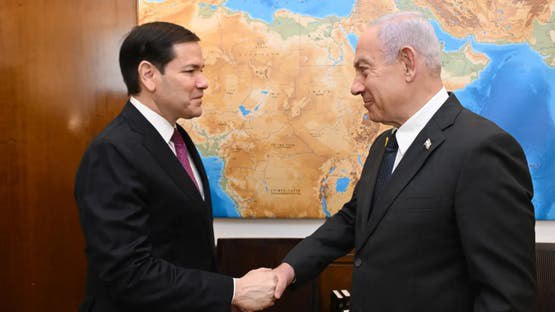"The Jerusalem Tunnel": A Shocking American Message and a Reinforcement of the Legitimacy of Occupation

The participation of U.S. Secretary of State Marco Rubio in the opening of the "Jerusalem Tunnel" beneath the Old City alongside Israeli Prime Minister Benjamin Netanyahu sparked a storm of political and legal controversy, revealing a dangerous shift in the American stance towards Jerusalem and opening the door to deep questions about the timing and the true significance of this participation.
The tunnel extending from the Wadi Hilweh neighborhood in Silwan to the foundations of the Western Wall is not just a construction project, but part of an ongoing Israeli strategy aimed at reshaping the identity of Jerusalem and imposing absolute control over the surroundings of the Al-Aqsa Mosque.
Major General Mohamed Rashad, former head of the Egyptian intelligence agency, described this inauguration as a "blatant violation of international law" and a stark bias towards the policies of occupation, citing UN Security Council resolutions that affirm that East Jerusalem is occupied territory, foremost among them Resolution 478 of 1980, which invalidated Israel's annexation of the city.
The irony is that the participation of the foreign minister of the world's greatest power is not merely a diplomatic courtesy, but a calculated political signal: a message of American support for Israel on one of the most sensitive issues, and an implicit acknowledgment of the projects aimed at changing the legal and historical status of Jerusalem, where the essence of the danger lies; this step provides international cover for the Judaization of Al-Aqsa and gives Netanyahu an internal political boost to continue his expansionist agenda.
The Egyptian security analysis clearly indicated that this participation is not an isolated event, but a precursor to granting Netanyahu explicit American legitimacy to consider annexing parts of the West Bank, in line with the dream of a "Greater Israel" promoted by the hardline right. Political support extends beyond Jerusalem to encompass the complete reshaping of the geopolitical map.
Rubio's presence at the opening of the tunnel represents a qualitative shift in the tools of conflict: from merely protecting Washington's interests in international institutions to actual participation in its controversial field projects. This places the United States in direct confrontation with international law and with the Arab and Islamic street, which sees in Al-Aqsa a doctrinal and historical symbol that is non-negotiable.